
Since its inception in 1995, Sikshasandhan has been working to extend the Right to Education to all children, especially children of tribal and other marginalised communities, focusing on innovating content, methods, and processes to impart meaningful education.

From 1995 to 1999, Sikshasandhan worked purely as a resource centre with less emphasis on field intervention. In 1998, Sikshasandhan and its partner organisations started Alternative Education Centres (AECs) for tribal children.

The focus was on developing a childfriendly curriculum, promoting education in the mother tongue, advocating relevant policy changes at the governmental level, and encouraging research and education publications.
In the year 2009, with the enactment of the Right to Education (RtE) Act, the organisation shifted focus to ensuring the universalisation of education. Sikshasandhan started working with 64 government schools in one of the remote tribal areas of the Mayurbhanj district of Odisha in 2010. The primary objective was to ensure the effective implementation of the RtE Act at the ground level and bring about policylevel changes through advocacy.
Sikshasandhan ran a special training centre for drop-out tribal girls with the support of Care India at Sarat, in the Mayurbhanj district of Odisha. Udaan is a unique and important intervention aimed towards girls from deprived and marginalized sections, who either dropped out or never gone to school, due to several reasons. Around 100 drop-out girls were enrolled each year for special training and learning. After a year of thorough training, the girls were eligible to be enrolled in Class 6. Sikshasandhan supported them with their enrolment in government schools and ensured they continue their higher education. Overall, we have reached out to around 600 out-of-school tribal girls in the project location.
The school and community science
program is a unique program
implemented by Sikshasandhan to
make science learning, exciting, funfilled and to enable students to
understand core concepts of science. In
the first phase of the programme, we
provided a hands-on science kit to 250
schools in 5 blocks of Rayagada,
Kandhamal and Kalahandi districts and
conducted science activities with
students in 103 elementary schools in a
systematic way. Training on science
concepts and theory were organized for
Government school teachers.
The programme was well appreciated
by different stakeholders and the
demand for hands-on engagement from
teachers and students made this an
impactful, given the context of the tribal
and marginalized communities and the
need for creating scientific temper. The
project was supported by Tata Trusts
and TCS Foundation.

One of the focus areas of Sikshasandhan are adolescent girls. We work on issues affecting girls primarily from a protection lens and build their capacities as change agents in their communities.

Campaigns on gender-specific concerns in schools, child marriage, child labour, nutrition, reproductive health and anti- trafficking are some of our initiatives.


Child Relief and You (CRY) majorly supported this work over the years.

Pada Pusti programme was piloted by Sikshasandhan and Azim Premji Philanthropic Initiatives (APPI) to combat malnutrition among children and women in Muniguda block of Rayagada district in collaboration with the district administration.
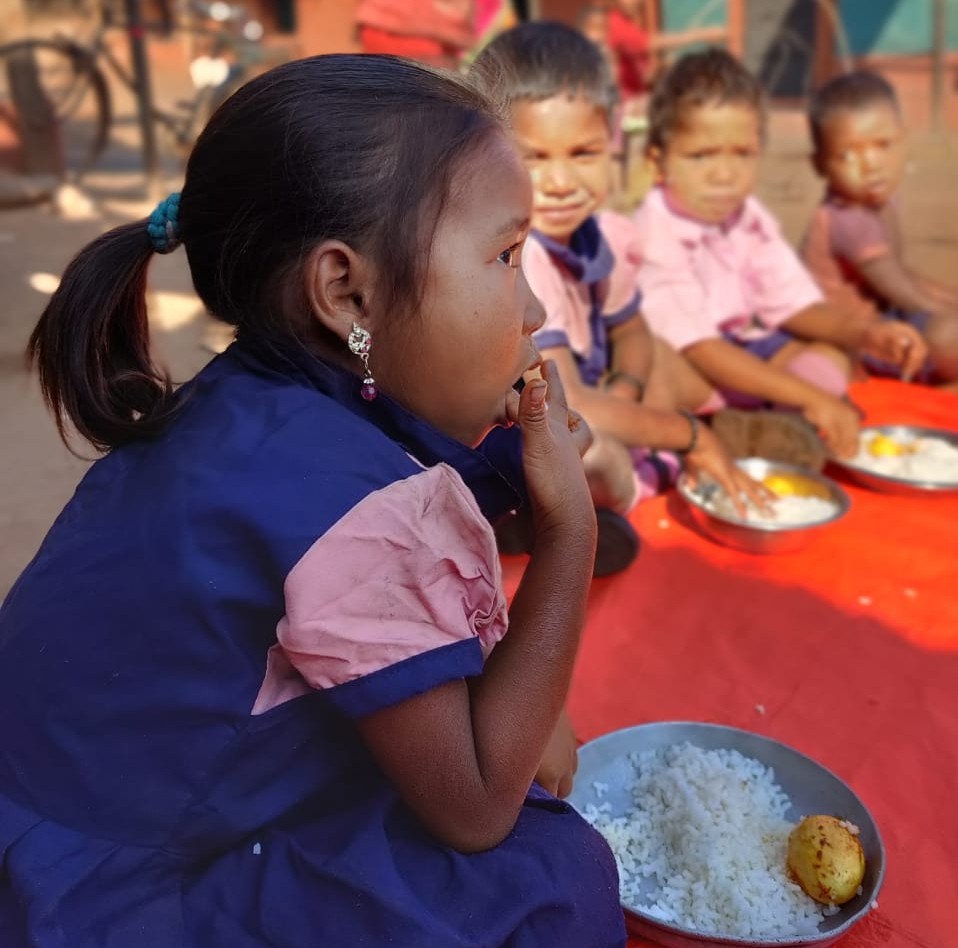
Pada Pusti Karyakram is a special programme designed to provide nutrition services in remote and hard-to-reach hamlets which do not have Anganwadis and/or are located far away from the main Anganwadi Centers (Tagged villages). The project was successful in reducing malnutrition to an appreciable extent. The Government of Odisha had appreciated this model and is keen to replicate it in similar situations.


Over the last few years and post-Covid-19 pandemic, we have realised that creating sustainable livelihood for tribal communities is imperative to bring long-term change. While working with the Lodha community, we have understood that sustainable change is only possible in the communities when there is an improvement in the livelihood status. Our initiatives were centred around promoting farm and off-farm activities.

Over the last few years and post-Covid-19 pandemic, we have realised that creating sustainable livelihood for tribal communities is imperative to bring long-term change. While working with the Lodha community, we have understood that sustainable change is only possible in the communities when there is an improvement in the livelihood status. Our initiatives were centred around promoting farm and off-farm activities.


We also focus on skill building and upskilling, by providing training to women on tailoring, sewing and sabai craft. Our primary focus now is building the capacities of women on Sabai craft. We support the women in marketing the products and in the future the aim is to register a producer company for them to manage and operate. Similarly, interested youth were identified and training course on light motor vehicle driving was given to them.
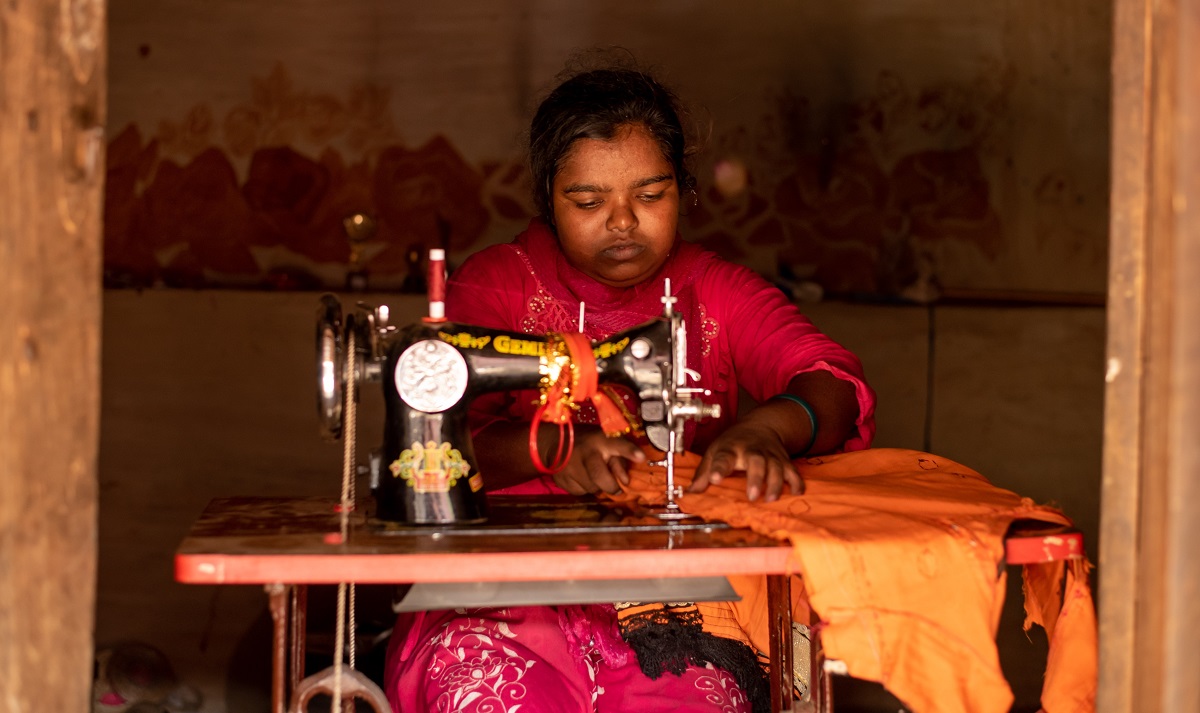
We also focus on Skill building and upskilling where we have trained women on tailoring and sewing and sewing machines were distributed.
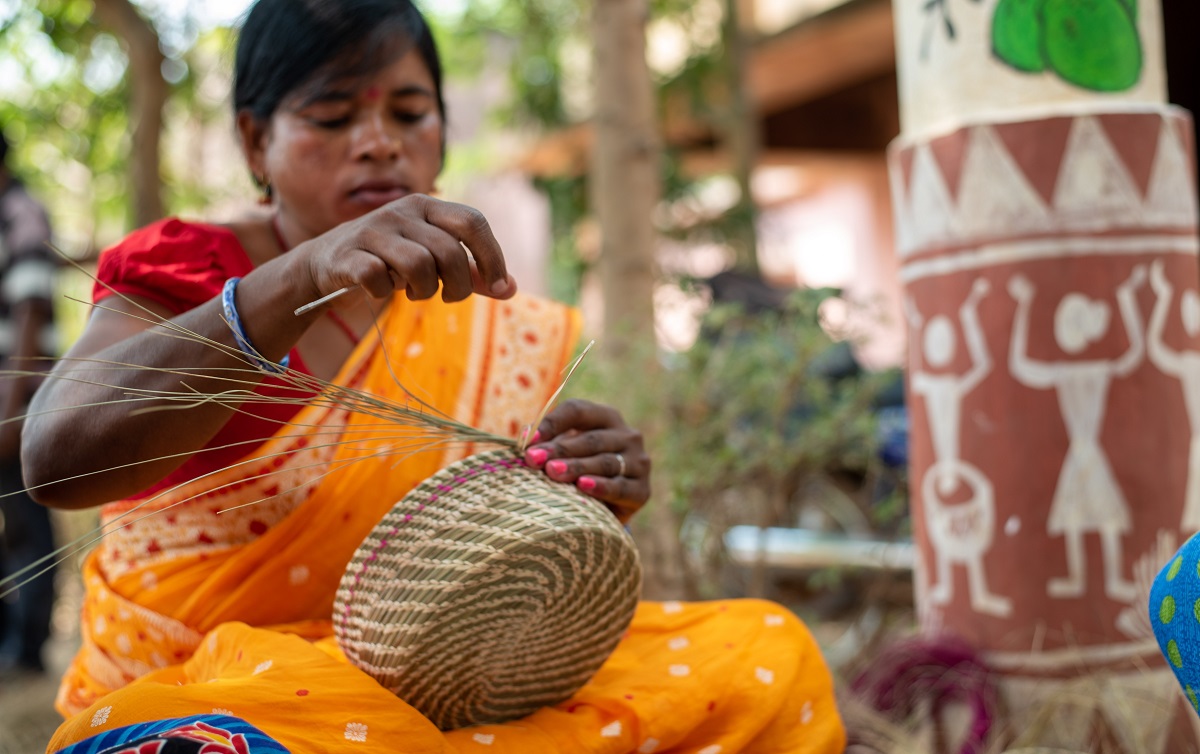
Similarly, interested youth were identified when driving. Our focus now is building the capacities of women on Sabai craft.

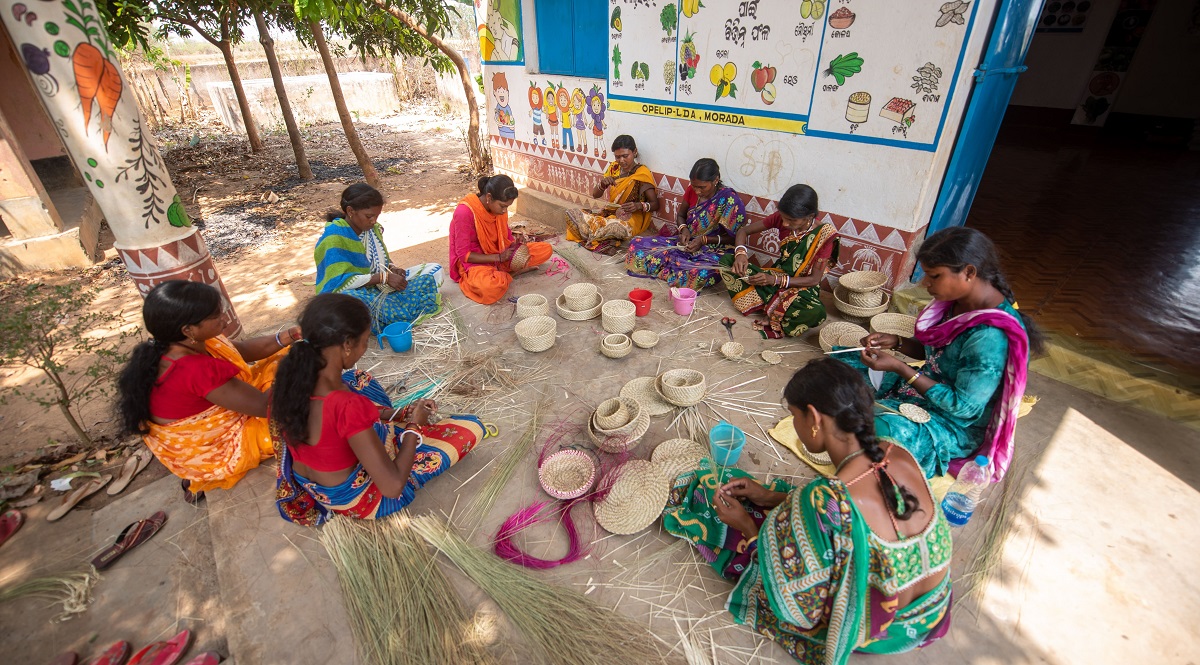
We support the women in marketing the products and in the future register a producer company for them to manage and operate.
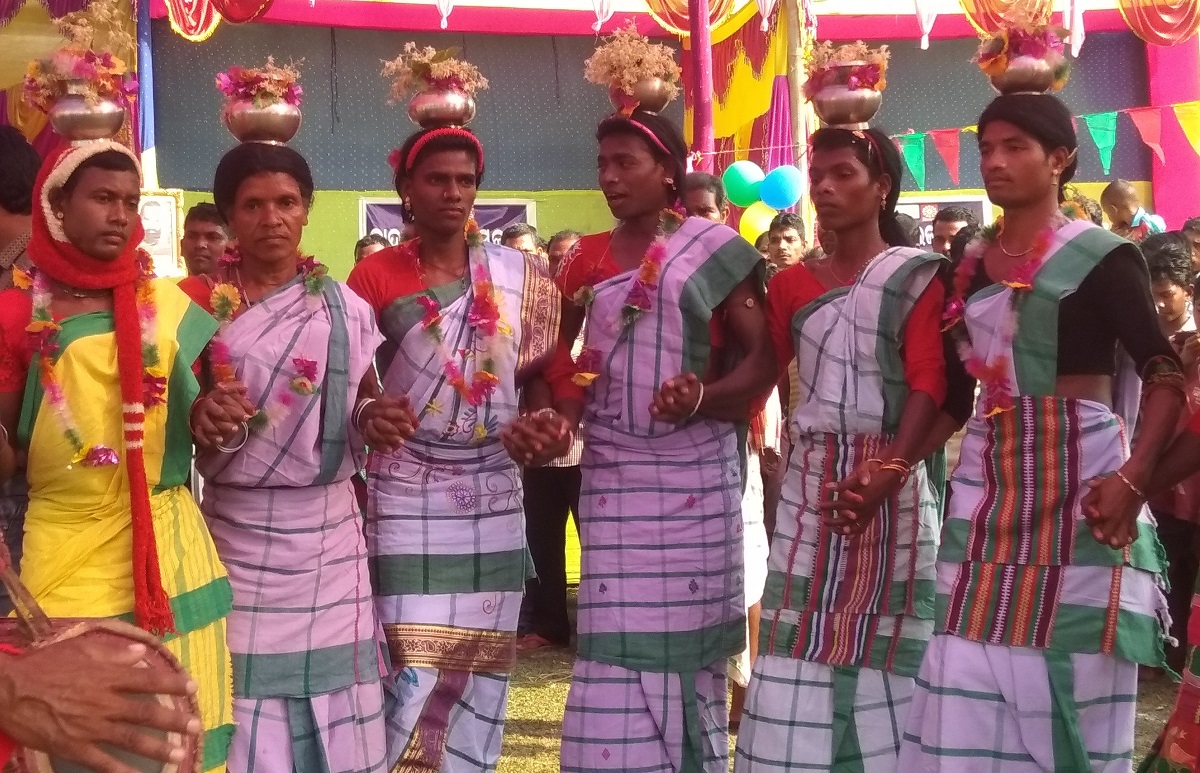
Sikshasandhan's initiatives revolve around preserving and promoting tribal culture, language and heritage to uplift the quality of life of tribal communities. Over the years, Adivasis feel the claustrophobic confines of their identity which have been imposed on them by others.
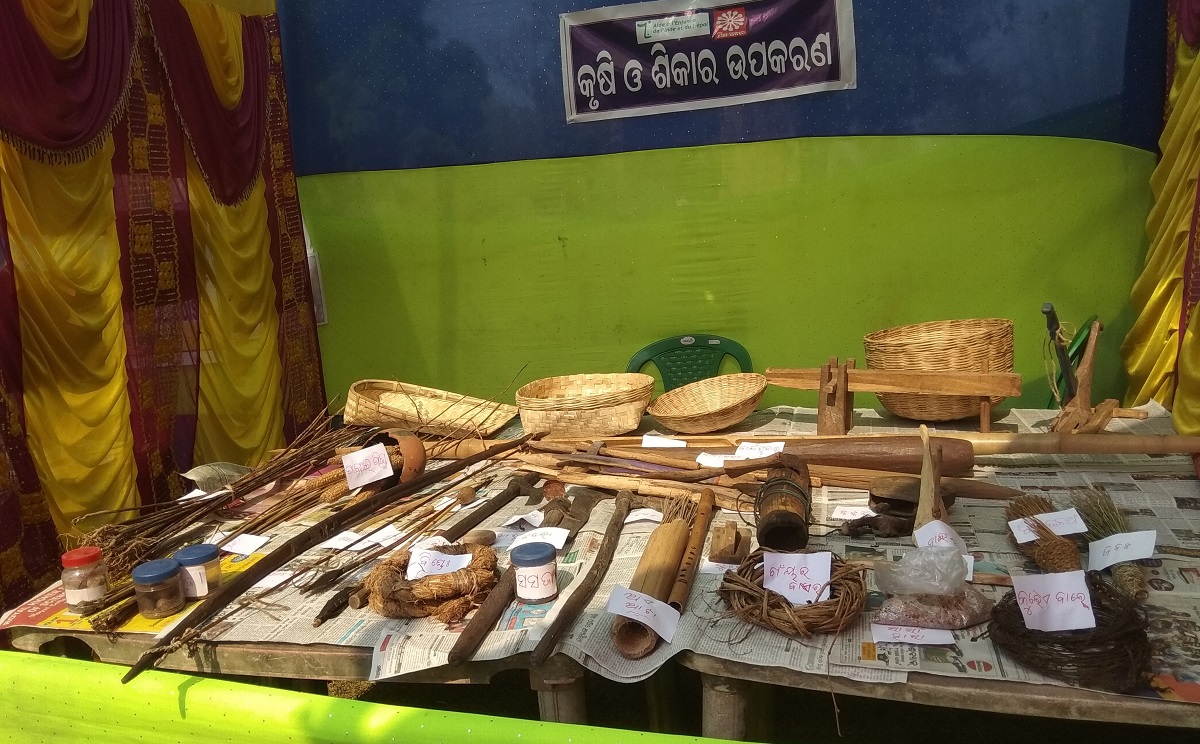
Therefore, we make a conscious effort to instill self-esteem and self-respect in children to be proud of their identity and heritage. We have also organised Women`s cultural groups. These groups are being trained to perform professionally so that they can showcase their heritage and traditions.


Sikshasandhan has been focusing on the psychological integration of the Lodha community with other communities. The community still carries the stigma of their once-criminal past.

They are socially ostracised and live in isolation from other tribes and social groups. To overcome this, we have organised youth in the community and promoted sports (football) among them.


These activities helped them eliminate the inferiority complex which used to weigh them down. Seeing the positive impact this has made in the children and the community as a whole, parents along with the other community members are now interested in educating their children.

For Sikshasandhan, 2020 was challenging as most of our programme activities were severely restricted after the lockdown imposed in March 2020. Despite most of the staff testing COVID positive, the team did not lose their spirit. With Azim Premji Philanthropic Initiatives' support (APPI), Sikshasandhan distributed relief kits (dry ration and soap) to 3750 tribal households in May 2020 in the Muniguda block of Rayagada district. Soon after, Sikshasandhan with support from our partners CRY, TDH-AIEN, Edelgive, KKS and Oxfam provided relief support to the community in the Kaptipada, Morada and Suliapada blocks of Mayurbhanj districts. While the relief work was considerably new for Sikshasandhan, there was great satisfaction as it provided vital support to the distressed community. In addition to the relief support, we also created awareness of health, hygiene, and COVID-appropriate behaviour. A total of 5000 households were provided with relief support and with Oxfam India's support 1000 households received support in the form of direct transfer of money.
As the government schools were closed, the government tried to support the learning of children online. However, the children in our project areas were unreachable due to the non-availability of mobile phones, lack of power supply and low internet connectivity. Also, children couldn’t get their parents' support for remote learning. As soon as the number of COVID-19 cases decreased in our project area, we started interacting with children through our volunteers. Our volunteers conducted activities for children at the village level, though there were some challenges on the ground.